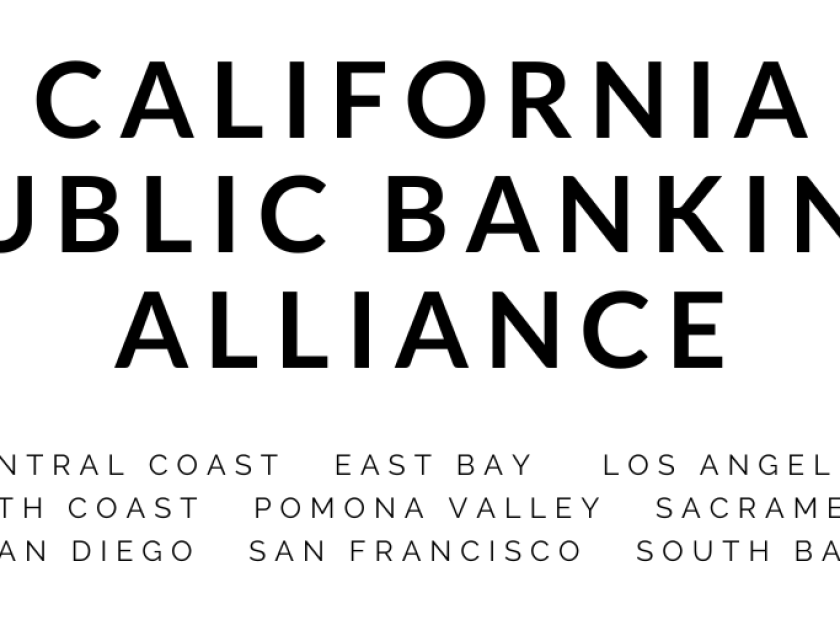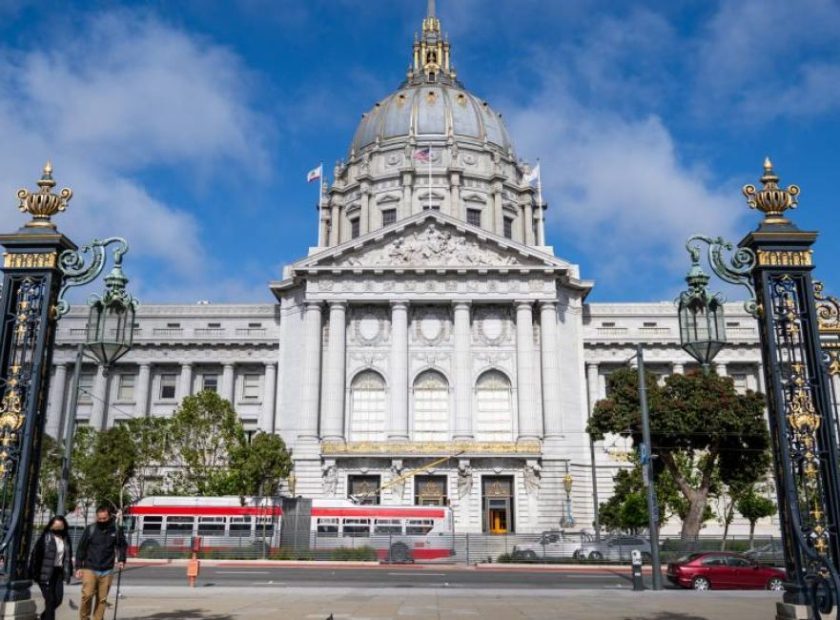April 17, 2020 – The Hill. Rick Girling of the California Public Banking Alliance and Isaiah Poole with Next System Project lays out the case for why public banks are a necessary engine for economic recovery.
At least 90 percent of the nation’s cities are facing a budget crisis because of the economic shutdown in response to the COVID-19 pandemic, according to a mid-April report by the U.S. Conference of Mayors and the National League of Cities. Because municipal governments cannot run deficits, they will have to respond by cutting staff and programs, which will worsen the economic conditions of the cities they serve.
If cities had public banks, they would be much better equipped to deal with these budget shortfalls and maintain the services and staff most vital to their economic recovery. That’s why state and local political leaders should use emergency powers to rapidly create public banks that can serve as key engines of a just and sustainable economic recovery.
Public banks are new to most of us in America, but they have been a proven institution globally for the past few hundred years. The one place in America where public banking is not new is North Dakota, where the 100-year-old Bank of North Dakota is widely credited with helping the state’s economy weather the 2008 recession far better than other states.
In 2019, the California Public Banking Alliance ushered through the California legislature historic legislation, AB 857, The Public Banking Act. This law for the first time allows municipalities across the state to set up public banks in their communities. An increasing number of states and localities are considering following California’s lead.
A public bank, capitalized with the deposits that cities now park in Wall Street banks, will be a ready source of funds to help people and businesses sustain themselves through these hard times and rebuild. Public banks, like all banks, are able to multiply the impact of their capital by leveraging it up to ten times in loans. They provide the most efficient means for expeditiously deploying funds quickly to help recovery efforts, such as the low-interest loans to small- and medium-sized businesses to help them get back on their feet.

© Getty Images
At least 90 percent of the nation’s cities are facing a budget crisis because of the economic shutdown in response to the COVID-19 pandemic, according to a mid-April report by the U.S. Conference of Mayors and the National League of Cities. Because municipal governments cannot run deficits, they will have to respond by cutting staff and programs, which will worsen the economic conditions of the cities they serve.
If cities had public banks, they would be much better equipped to deal with these budget shortfalls and maintain the services and staff most vital to their economic recovery. That’s why state and local political leaders should use emergency powers to rapidly create public banks that can serve as key engines of a just and sustainable economic recovery.
Public banks are new to most of us in America, but they have been a proven institution globally for the past few hundred years. The one place in America where public banking is not new is North Dakota, where the 100-year-old Bank of North Dakota is widely credited with helping the state’s economy weather the 2008 recession far better than other states.
In 2019, the California Public Banking Alliance ushered through the California legislature historic legislation, AB 857, The Public Banking Act. This law for the first time allows municipalities across the state to set up public banks in their communities. An increasing number of states and localities are considering following California’s lead.
A public bank, capitalized with the deposits that cities now park in Wall Street banks, will be a ready source of funds to help people and businesses sustain themselves through these hard times and rebuild. Public banks, like all banks, are able to multiply the impact of their capital by leveraging it up to ten times in loans. They provide the most efficient means for expeditiously deploying funds quickly to help recovery efforts, such as the low-interest loans to small- and medium-sized businesses to help them get back on their feet.
Imagine the difference it will make when a network of public banks exists to partner with the Small Business Administration to help execute the Paycheck Protection Program authorized by Congress. Instead of small businesses being frustrated trying to work with the commercial banks to obtain the loans, and having no place to turn when the agency announced the program ran out of funds on April 16, public banks would be there to stand in the gap.
Continue reading on The Hill.



